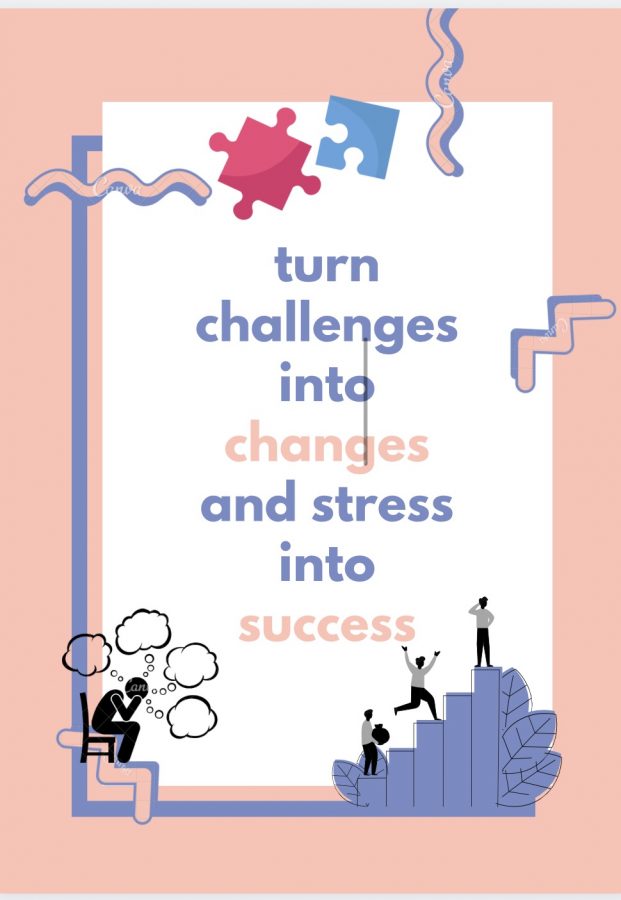How stress affects you physically
Even with stress being a challenge, you can turn it into success.
The factors that involve stress are greater than anyone will ever know. Stress is just the simplified category of anxiety, overthinking, being overwhelmed and a variety of other things. The human body will produce boundaries when it comes to stress and limits people to do certain things or to feel a certain way.
There are also various different causes of stress that lead to being put under immense amounts of pressure, facing big changes, worrying about something, etc.
Stress is not a joke and it physically and mentally can destroy someone, without others knowing, or without help. Stress creates many problems and comes from many different things.
“With regard to physical health, the results were also consistent with prior research that has shown associations between disaster exposure and symptoms and one prior study that linked cumulative exposure and overall physical health.” Sarah Lowe a Physical health expert at the National Institute of Environmental Health Sciences.
Recognizing another’s well-being can at times be impossible. They may close off the conversation when asked about when or if they are stressed, they try to develop new ways to ignore or avoid those conversations. Due to the physical and psychological impact of anxiety.
These people fear many things such as being socially judged and manipulated by others. The main issue stems from the fear of rejection by others. They do not want to be rejected from talking to another person.
“Talking to someone helps but I don’t like opening up about certain things so I tend to keep those certain things to myself. I also don’t like talking about my individual struggles,” college student-athlete Haley Paulson said.
Being pressured into a situation or pressured into talking to someone is difficult and will show recurring physical changes to someone. There are many causes of this such as an increase in financial obligations, loss of a job, moving to a new home, etc. These circumstances lead to things such as aches and pains, headaches, migraines, an upset stomach, muscle pains and an extreme pounding of the heart.
“I have chronic headaches. I guess sometimes depending on how much I’m sleeping, I have chronic fatigue. Sometimes, paying attention harder, or doing well in school is harder but physically speaking, I had four compression fractures in my back, my back vertebrae and my vertebrae hurt when I don’t sleep. The pain is so increased by, like, a very significant amount. So I physically notice the difference as well,” senior Libby Engebretson said.
Stress issues can be genetic and it corresponds with depression. Depression can be caused by various factors. However, it leads to dreadful outcomes. Feelings of worthlessness, hopelessness, inability to make good decisions and even suicide. Planning or attempting suicide has a strong correlation with depression.
Depression also causes the hippocampus to raise cortisol levels inside your brain which develops neurons. This is significant because it controls many things in the human body.
According to the studies at Mayo Clinic, “Depression has many possible causes, such as genetics, brain chemicals and your life situation.” and “Chronic stressful life situations can increase the risk of developing depression if you aren’t coping with the stress well.”
If stress is recurring throughout one’s day, year, or life, one will notice continuing pain or problems. Mental unmotivation is vast for stress. Sleep deprivation can correlate with stress and there are many more things that stem from unmotivation like eating, interacting with others, etc.
A loss of confidence eating is extremely dangerous and can cause many problems such as anorexia. This also can cause hospital visits as well. When stressed one can also eat too much and then become obese. This could possibly lead to type 2 diabetes.
“I notice only a few physical pains such as headaches, but nothing severe. I have a lot of recurring symptoms like lack of sleep and motivation and those a lot of the time lead to my headaches and migraines,” college student-athlete Mia Huberty said.

Hi my name is Jacob Farrell, this is my 2nd year on The Spartan Speaks. I was a reporter last year, and am now a Sports Editor. I am a captain of the basketball...











